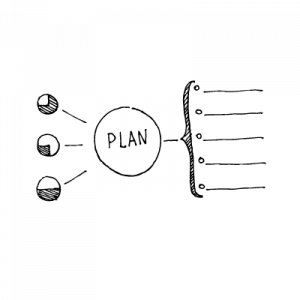When many people think about MBA programs, they think of very academic settings: students sitting in classrooms, listening to lectures; maybe working on case studies. But many MBA programs offer ways for students to gain real-world experience outside of a classroom.
Sometimes called “consulting projects,” these experiences can add a practical dimension to the lectures and reading staples of business school. For instance, during a “live case study,” students in the MBA program at Otago University's School of Business have the opportunity to work directly with local and international firms over several months to help solve real business problems.
Otago's MBA director, Ian Lafferty, says that in the past, students have worked with many different organizations, including a successful New Zealand-based lamb farmer who wanted to move into the international market.
“It's really a project that would typically be undertaken by a team of staff from within the company,” Lafferty says, and that “this is real, live work experience.”
Since the project takes place after students have already taken their core business classes (like marketing, accounting, and operations), “they've got all the technical subjects already under their belts, and they're well-equipped to deal with a range of projects,” Lafferty says.
For many MBA students, these consulting projects are a good way to see how the business concepts they're learning in class apply to the real world, according to Greg Stoller, who instructs a semester-long international consulting course at Boston College.
“There is nothing like going into the field and kicking the academic tires,” says Stoller.
Making it real
Kicking the tires in an MBA consulting project can include a variety of activities, but usually include a good deal of research, presentations to a client company, and integrating rounds of feedback.
Seth Kelley, an MBA student at the University of Missouri's Trulaske College of Business, said that his experience consulting with a municipal transit system to help it increase ridership was just as valuable as classroom learning.
“We did analysis, looked at the information they gave us, and gave some recommendations about how they could increase ridership,” he says.
“The consulting and working on live cases that cover real-world problems is the absolute best way to gain experience applying the principles we learn in the class,” says Kelley. “So it makes it real.”
Consulting projects can also add breadth to a business school experience. For example, Boston College's international consulting course allows students to travel to locations like China and Latin America to work on projects with consulting firms. Greg Stoller says that the students who take the China course “want to expand into consulting directly, with more of an international focus.”
Students in the class spend a semester working with a Chinese consulting firm on a project for a client, and then travel to Beijing for a week to present their recommendations. Chris Canton, an MBA student who took the course in 2011, says that beyond improving his analytical skills, the experience also helped him manage what has become an important part of many businesses: working on projects across borders and cultural lines.
“Wherever you go – whether you're in the United States or in Europe or in China, or wherever,” he says, “you're going to be working with people with different backgrounds, who come from different cultures, and who might speak a different language.”
In the course, Canton worked in a team to help a large Chinese aircraft manufacturer figure out how to expand its business internationally, in order to compete with large brands like Boeing and Airbus. One of the team's responsibilities was to analyze the potential risks of growing the company into a global business. Among the issues that the team identified were the inherent risks in sourcing increasing amounts of raw materials – they thought the firm could run into problems if it needed materials from a conflict zone, and brought up “Blood Diamonds” as a case in point.
“The concept didn't even register,” Canton says. “It was like it didn't cross the cultural barrier.”
Converting consulting projects to post-MBA jobs
A benefit of MBA consulting projects is that they can allow students to demonstrate their business and management skills to a company. According to Otago's Ian Lafferty, every year some students land jobs with the firms that they have done their live case studies with. But more broadly, Lafferty notes, the experience can just as easily be applied to many different future opportunities.
“It gives them a chance to understand how typical projects operate,” Lafferty says,. “It's really a starting point to make the next move in their career.”
Chris Canton would agree. Recently, he landed a job with an investment management firm, and partially attributes his successful placement to his China-based consulting project.
“The way I have it on my resume is basically as if it was an internship with the project, my title, and what I did,” says Canton. “And in every interview, they asked about it.”
Photo: Injeongwon / Creative Commons










